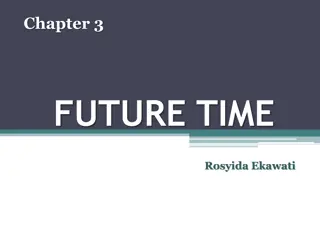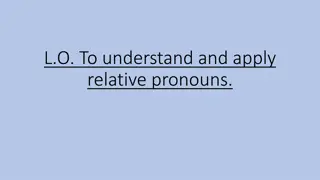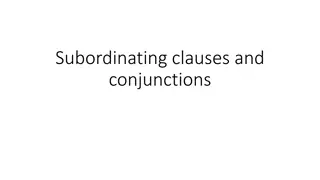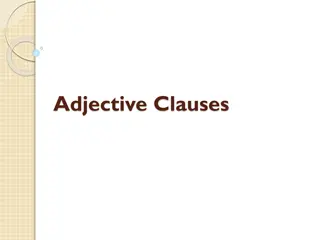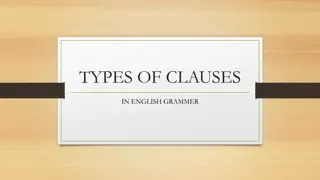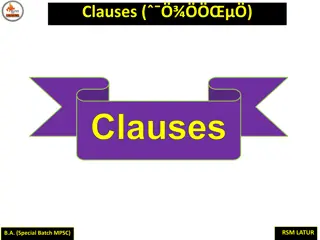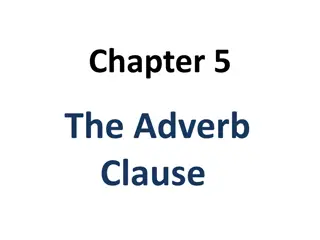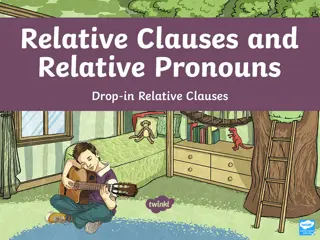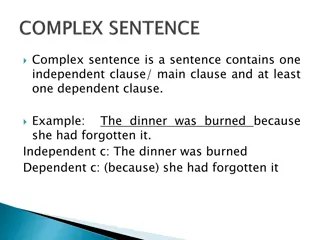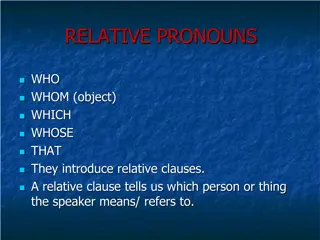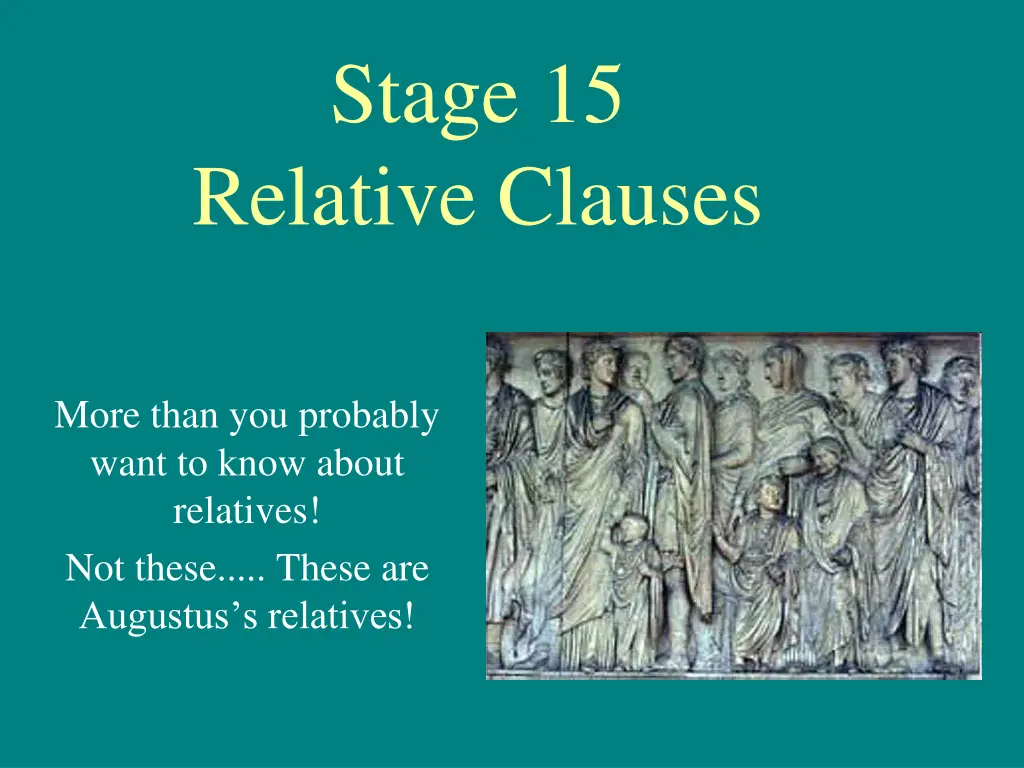
Understanding Relative Clauses for Language Learners
Discover what relative clauses are, how they function in English and Latin, and learn about relative pronouns. Dive into examples illustrating how to weave clauses together to form coherent sentences. Explore the nuances between English and Latin relative pronouns.
Download Presentation

Please find below an Image/Link to download the presentation.
The content on the website is provided AS IS for your information and personal use only. It may not be sold, licensed, or shared on other websites without obtaining consent from the author. If you encounter any issues during the download, it is possible that the publisher has removed the file from their server.
You are allowed to download the files provided on this website for personal or commercial use, subject to the condition that they are used lawfully. All files are the property of their respective owners.
The content on the website is provided AS IS for your information and personal use only. It may not be sold, licensed, or shared on other websites without obtaining consent from the author.
E N D
Presentation Transcript
Stage 15 Relative Clauses More than you probably want to know about relatives! Not these..... These are Augustus s relatives!
What well cover What is a clause? The English relative clause The English relative pronoun The Latin relative pronoun Latin relative clauses
What is a clause? Any thought, idea, or event which is expressed in language Clause 1: Rufilla is unhappy. Clause 2: Rufilla lives far fom London. 2 clauses: Rufilla is unhappy because she lives far fom London. 2 clauses: Rufilla, who lives far fom London, is unhappy.
An English Relative Clause is... ... a giant adjective clause, giving us information about a noun in another clause. Let s look at an example showing how the relative clause evolves.....
Heres an example we have two single clauses: Clause 1: The boys are not listening to the master. Clause 2: The master is reading a very long story.
Relative Clause Now, we ll weave the two clauses into one sentence with a Main Clause and a relative clause describing a noun in the Main Clause. Step 1: Step 1: Clause 1: The boys are not listening to the master. Clause 2: The master is reading a very long story. Substitute a pronoun for master in Clause 2. Clause 1: The boys are not listeningto the master. Clause 2: He is reading a very long story.
Weave into one sentence Step 2: Clause 1: The boys are not listening to the master. Clause 2: He is reading a very long story. Weave them together into one sentence..... MAIN CLAUSE: The boys are not listening to the master, RELATIVE CLAUSE: ? is reading a very long story. who giant adjective describing the master
English Relative Pronoun The English relative pronoun has cases just like in Latin! PEOPLE/ANIMALS who ANIMALS/THINGS which which Nominative Acusative whom Note: 1. In English, we often say that instead of who, whom, or which. The boy whom I like plays basketball becomes The boy that I like plays basketball 2. In English we also can omit the relative pronoun altogether. The boy I Iike plays basketball. THIS CANNOT HAPPEN IN LATIN LATI N MUST ALWAYS USE A RELATIVE PRONOUN
Another Example Clause 1: The slave is terrified. Clause 2: The bull is chasing the slave.
Now, well weave the two clauses into one sentence with a Main Clause and a relative clause describing a noun in the Main Clause. Clause 1: The slave is terrified. Clause 2: The bull is chasing the slave. Step 1: Replace slave in Clause 2 with a pronoun what pronoun? Clause 1: The slave is terrified. Clause 2: The bull is chasing __?__. him
Clause 1: The slave is terrified. Clause 2: The bull is chasing him. Step 2A: Merge the two sentences.... The slave the bull is chasing him is terrified Step 2B: A bit more work to make one MAIN CLAUSE and one RELATIVE CLAUSE The slave the bull is chasing him is terrified whom Now, replace the pronoun him with a relative pronoun what relative pronoun?
Final Adjustments The slave the bull is chasing whom - is terrified. That s not how we really would say it.... So, move the relative pronoun whom to the beginning of the relative clause.... And EUGE! The slave, whom the bull is chasing, is terrified. giant mutant adjective describing the slave

